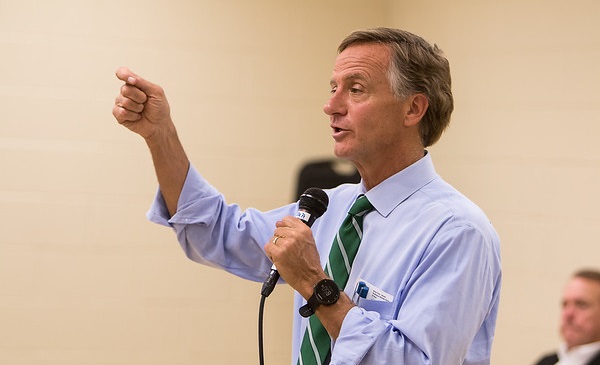The first test of Gov. Haslam’s proposal to increase the gas tax to fund road construction is scheduled to take place when the House Subcommittee on Transportation votes today on whether to move the bill to the full Transportation Committee.
The Subcommittee has heard testimony from various supporters and opponents of the bill, but to date has not yet heard testimony from representatives of one private corporation that will be impacted by the proposed gas tax increase: Pilot Flying J, the company owned and operated by Gov. Haslam’s family.
Questions have been raised by opponents about the potential conflict of interest posed by Governor Haslam’s proposed fuel tax increase if it benefits the privately held, family owned business Pilot Flying J, a distributor and a retailer of gas and diesel fuel.
Critics of any fuel tax increase, whether it is the governor’s plan or the alternative Hawk plan, have questioned whether cash flow increases on the distribution side from collecting and holding the increased tax and/or increased profits on the retail side, could aid Pilot’s recovery from its $162 million payout related to the company’s rebate fraud case.
The Tennessee Star asked committee members whether a representative from the ranks of Pilot’s senior management should be invited to address this issue in a committee hearing.
State Rep. David Alexander (R-Winchester) is one of the few members of the Senate Transportation Committee or the House Transportation Committee of The Tennessee General Assembly to respond to an inquiry from The Star as to whether a full and open discussion in a committee hearing of exactly what impact Gov. Haslam’s proposed fuel tax increase will have on the Haslam family business, would be in the public interest.
Alexander, a member of the House Transportation Subcommittee where an initial vote on the governor’s proposal is scheduled for Wednesday, responded Tuesday morning to The Star.
“A full and open discussion of any and all aspects of the impact that the fuel tax would have on anyone is certainly in order. Facts are facts and they should all be out there. The more correct information we have, the better our decision will be,” Alexander said in his email to The Star, which is displayed below:
:
The close relationship between Gov. Haslam and members of his cabinet to business interests which stand to benefit from proposed laws and policies has been a subject of interest for some time.
For instance, The Boyd Center for Business & Economic Research at the University of Tennessee at Knoxville has released a study supporting the Governor’s gas tax plan. The Boyd Center is named for Randy Boyd appointed by the Governor in 2015 to serve as Commissioner of Economic and Community Development. Boyd resigned this position last month and is considering entering the 2018 governor’s race.
The Boyd Center is located within the Haslam College of Business at the University of Tennessee at Knoxville. The college was named for James Haslam II, the family patriarch after his family transferred a $50 million gift to the UT College of Business Administration.
The Board of Trustees is the governing body for the University of Tennessee and is comprised of twenty-six members, including Governor Haslam, who serves an ex-officio voting member and “by election,” chair of the board.
There are five other ex officio members and twenty-one other board members appointed by the Governor.
Inter-connectedness like this, and the Haslam family’s privately owned company Pilot Flying J, coincidental perhaps, have caused some to raise questions regarding conflicts of interest that undermine the public’s trust and confidence in the decision-making process.
The public trust is a matter that many members of the Tennessee General Assembly take seriously.
When asked directly, “would the better practice in this regard be to simply put all the facts out there” Rep. Alexander said it best, “[f]acts are facts and they should all be out there.”






